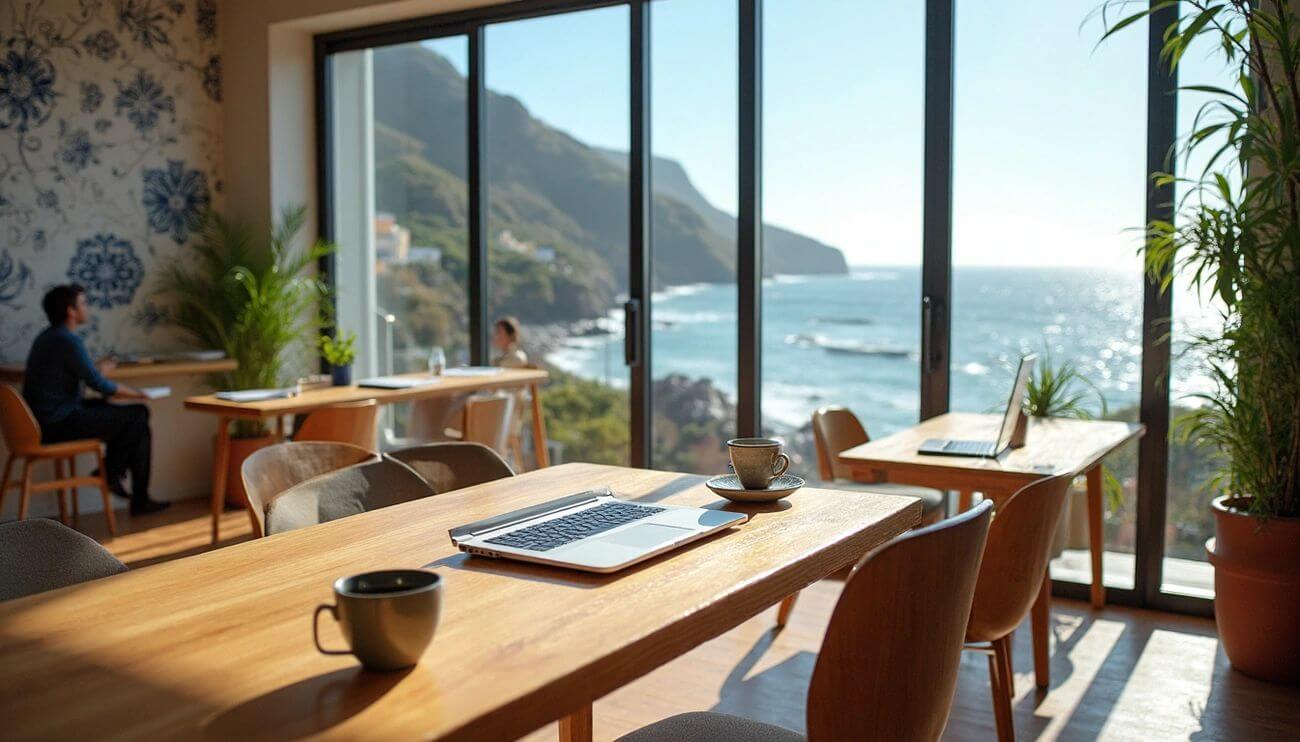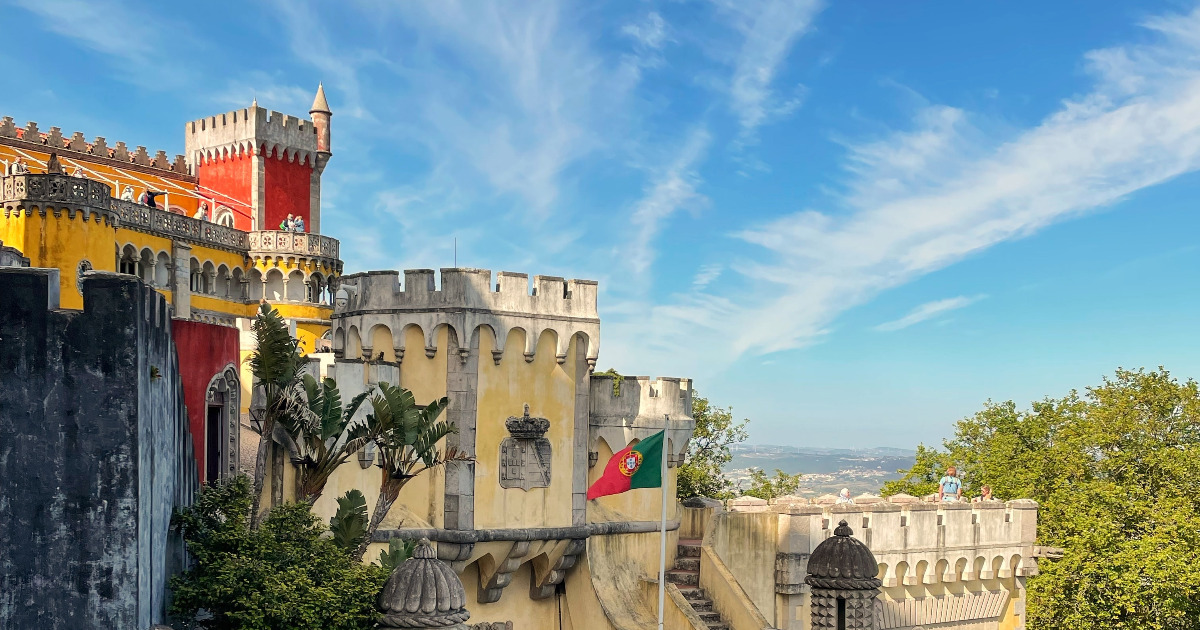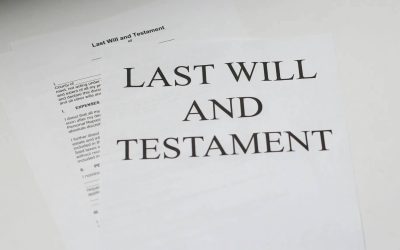Thinking of becoming self-employed in Portugal? Portugal’s self-employed workforce registered with social security grew by 25.3% in 2021. The country now hosts 704,200 freelancers and has become a bustling center for independent professionals.
The country’s nickname as “the Silicon Valley of Europe” makes self-employment here very appealing to expats and digital nomads. About 13.3% of people in Portugal work as self-employed professionals or freelancers, similar to the European average. The country stands out from others, especially when you have Madeira Island as your chosen destination.
Life costs less here than in other European countries. Tax benefits like the Non-Habitual Residency (NHR) regime give qualifying foreign residents a flat 20% income tax rate. These perks make this Mediterranean paradise a top choice for many. On top of that, it lets self-employed people access healthcare and pension benefits through the social security system.
This piece walks you through the essentials of becoming self-employed in Portugal, no matter if you’re from the EU or elsewhere. You’ll learn how to get your NIF, understand tax requirements, and dodge common mistakes along the way.
Why Madeira Island is Ideal for Self-Employment
Madeira Island stands out as a top destination for self-employed professionals who want to balance their work and lifestyle. This Portuguese archipelago in the Atlantic Ocean draws attention from freelancers and independent business owners with its unique benefits.
Affordable cost of living and quality of life
Portugal’s mainland already offers great value, but Madeira takes it a step further. You can find rental properties in Funchal, the island’s capital, starting at €500 to €600 monthly. Digital nomads who choose Funchal pay between €1200 and €2500 per month. Long-term stays often come with better rates.
The island’s living costs make it even more attractive:
- Monthly groceries cost €300-400
- A meal at a restaurant costs about €20 per person
- Public transport tickets cost €2-4 per trip
Madeira’s quality of life goes beyond just affordable prices. The island has low crime rates, which makes it safe for everyone who lives or visits here. You’ll find resilient infrastructure with good roads, reliable public transport, and high-speed fiber-optic internet – perfect for remote workers. The island’s stunning natural beauty, from green forests to beautiful coastlines, creates an inspiring environment for both creative and professional work.
Growing digital nomad and expat community
Madeira has become Europe’s fastest-growing remote work hub since 2021. The Regional Government partnered with Startup Madeira to launch the Digital Nomads Madeira Islands initiative. This program has brought 4,670 nomads to Madeira and Porto Santo.
Success came from smart planning:
- The world’s first “Nomad Village” opened in Ponta do Sol
- Official digital nomad communities now exist in Funchal, Machico, Santa Cruz, and Porto Santo
- A strong expat community from the UK, Canada, and the US calls Madeira home
The island’s digital nomad scene offers much more than just work opportunities. Weekly events unite people through open mic nights, group lunches at local spots, workshops, and skill-sharing sessions. These gatherings help build professional networks and friendships, making it easier for newcomers to feel at home.
Access to coworking spaces and networking events
Remote professionals have many coworking options on Madeira now. Here are some popular choices:
Cowork Funchal sits in the heart of the capital. Members pay €130 monthly for workspace access and community benefits. Sangha Cowork, supported by the Dorisol Hotels group, gives members special access to premium perks like pools, gym facilities, and restaurants.
The networking scene is just as strong. “Connecting the Dots” brings tech enthusiasts, entrepreneurs, and digital nomads together in a relaxed setting. The yearly “Nomad Island Fest” runs for over a week and attracts professionals worldwide.
Madeira Island gives self-employed professionals in Portugal something special – a rare mix of affordable living, supportive community, and great work infrastructure that’s hard to find anywhere else in Europe.

Who Can Become Self-Employed in Portugal
Portugal opens its doors to freelancers worldwide, but your passport decides how you can work as a freelancer here. You need to know your options to make a smooth move, especially if you want to work from beautiful Madeira Island.
EU/EEA citizens and their rights
Life is easier if you have an EU or EEA passport. You can start working as a freelancer in Portugal right away thanks to European free movement rights. No special visa needed – you can live and work here freely.
Here’s all you need to do:
- Register with your local municipal council
- Get your tax and social security numbers
- Register your professional activity
EU/EEA citizens don’t face any visa hurdles that other nationalities do. You just need to follow Portuguese business rules and pay your taxes. This makes Madeira Island a great spot for European freelancers who want island life without immigration headaches.
Visa options for non-EU citizens
Non-EU citizens need to get a residence visa to work as freelancers in Portugal. You’ll need to ask for this visa at the Portuguese embassy or consulate back home or where you live now.
Temporary stay visas work well if you plan to stay less than a year. These match the length of your work. Residence visas let you enter Portugal for four months. During this time, you’ll need to get a residence permit from Portuguese Immigration.
Here’s what you’ll need for your visa application:
- Valid passport
- Passport photographs
- Transport documents
- Valid travel insurance
- Criminal record from your home country
- Proof you have enough money
Planning to stay more than a year? Skip the temporary visa and go straight for a residence visa.
Freelancer-friendly visa types: D2, Digital Nomad, Golden Visa
The D2 Visa (Entrepreneur Visa) works great for non-EU citizens who want to start a business or work independently in Portugal. This visa fits everything from small coffee shops to bigger companies. Freelancers need to show they either have a work agreement with a Portuguese company or their services help Portugal’s economy.
The Digital Nomad Visa (D8), which started in October 2022, gives you two choices:
- A long-term residency visa that’s good for four months at first and can become a two-year residence permit
- A temporary stay visa good for up to twelve months
Both need you to earn at least €3,480 monthly – that’s four times Portugal’s minimum wage. The long-term option can lead to permanent residency after five years. The temporary one can be renewed four times but won’t get you permanent residency.
The Golden Visa lets you live and work in Portugal if you make a big investment. While it’s mostly about investing, self-employed people can still run businesses or offer services with this visa. Your family members can work in Portugal too if they’re on your Golden Visa application.
The D2 or Digital Nomad visas are your best bet for moving to Madeira Island unless you have big money to invest (at least €250,000). These visas have become hot picks for remote workers who want Portugal’s amazing lifestyle and business-friendly setup.
Steps to Becoming Self-Employed in Portugal
The path to becoming self-employed in Portugal is straightforward. You’ll need to complete several administrative steps in sequence to run your business legally.
1. Get your NIF (Tax Identification Number)
Your NIF (Número de Identificação Fiscal) acts as your Portuguese tax ID. You’ll need this nine-digit number for everything from opening a bank account to signing rental agreements and registering your business.
You can get your NIF in two ways:
- Show up at a local tax office (Finanças) with your passport and proof of address
- Let an online service provider handle it remotely (costs between €80-120)
EU/EEA citizens can get their NIF easily and free of charge. The process became simpler for non-EU citizens in July 2022 when the tax representative requirement was dropped.
2. Open a Portuguese bank account
Your next step after getting the NIF is opening a Portuguese bank account. Several major banks like Caixa Geral de Depósitos, Millennium BCP, and Banco Santander work well for self-employed professionals.
You’ll need these documents:
- A valid passport or EU ID card
- Your NIF number
- Proof of address (utility bill or rental contract)
- Proof of employment/income
- Starting deposit (usually €200-300)
Banks in Madeira offer special services for international clients, including English-language support and online banking.
3. Apply for a NISS (Social Security Number)
The NISS (Número de Identificação da Segurança Social) links you to Portugal’s social security system. This gives you access to healthcare and other benefits. You can apply for your NISS online through the Social Security portal:
- Go to the Social Security website
- Click on “I am a Citizen” tab
- Select “Atribuição de Número de Identificação de Segurança Social”
- Fill out the form and upload your documents
The service costs nothing. You’ll get an email with instructions to pick up your NISS at the Social Security office.
4. Register your activity with Finanças
After getting your NIF and NISS, register your professional activity with the Portuguese Tax Authority. You can do this:
- Online through the Portal das Finanças (www.portaldasfinancas.gov.pt)
- At a tax office in person
The registration process needs details about your work and expected yearly income. Social Security automatically learns about your self-employed status when you register.
5. Choose your accounting regime and activity code
Your last step is picking between two accounting systems:
- Simplified Regime: Perfect if you earn less than €200,000 yearly, with easier tax calculations
- Organized Accounting: Required if you earn more than €200,000, and you’ll need a certified accountant
You’ll also need to pick activity codes that match your services:
- CIRS codes for service providers (one main code, up to 4 secondary)
- CAE codes for business activities (one main code, up to 19 secondary)
A local accountant who knows Madeira Island’s specific rules can help you make the best choices for your situation.
Benefits of Becoming Self-Employed in Portugal
Self-employment in Portugal brings amazing lifestyle perks and real financial benefits. These advantages make it a great choice for expats who want to move to Madeira Island.
Lower operational costs compared to other EU countries
Portugal stands out with some of Western Europe’s lowest operational costs. Self-employed professionals can save money on many expenses. Business costs like rent, utilities, internet, and general overhead are much cheaper than similar expenses in France, Germany, or the Netherlands.
Portugal’s stable economy gives you a solid base to start and grow your freelance business. You won’t face the same financial pressure as in other expensive European markets. This cost advantage lets freelancers charge competitive rates and keep better profit margins.
Access to public healthcare and social security
Starting a self-employed business in Portugal lets you use the country’s excellent universal healthcare system. You can get an SNS (National Health Service) user number after registering with Social Security. This number gives you access to medical care at public healthcare facilities.
Self-employed workers need to pay 21.4% of their relevant income to social security. The benefits you get are worth it and include:
- Unemployment benefits
- Sick leave allowances
- Parental benefits
- Family allowances
- Invalidity benefits
- Retirement and survivor’s pensions
New self-employed workers don’t have to pay social security contributions for their first 12 months. This break gives you valuable financial space when you’re just starting out.
Eligibility for tax incentives like NHR (if applicable)
Portugal offers special tax benefits through programs like the Non-Habitual Resident (NHR) regime. This program taxes qualifying high-value activities at a flat 20% rate instead of progressive rates that can go up to 48%.
The original NHR scheme closed to new applicants after December 31, 2023. People who already have NHR status can still use these benefits for their full 10-year period. Portugal now has the IFICI program (also known as “NHR 2.0”). This new program targets international workers in specific jobs including scientists, researchers, and certain highly qualified professionals.
Madeira Island’s self-employed professionals get the best of both worlds. These tax advantages combine with the island’s other perks to create an ideal environment for anyone looking to optimize their finances and quality of life.
Common Pitfalls and How to Avoid Them
Setting up as a self-employed person in Portugal comes with its challenges. Many expats face several pitfalls when they start their independent business on Madeira Island.
Understanding VAT and income tax obligations
You must register for VAT (IVA in Portugal) if your annual turnover goes beyond €15,000 in 2025. The standard VAT rate is 23% on mainland, 22% in Madeira, and 16% in the Azores. After registration, you need to submit VAT declarations and payments every quarter.
Income tax works through two main systems:
- Simplified regime: This works for earnings under €200,000 yearly and offers simpler calculations with fewer tax requirements
- Organized accounting: You need this if you earn above €200,000, and it requires detailed bookkeeping
Portugal’s income tax rates go from 13% to 48%, based on your income bracket. If you’re new to self-employment, you get a 12-month break from social security payments. After that, you pay 21.4% of your earnings.
Dealing with Portuguese bureaucracy
Let’s be honest – Portuguese paperwork can be tough if you’re new here. You must sign up for income tax, social security, and VAT. Each comes with strict deadlines. Missing these can lead to penalties that pile up quickly.
Your social security payments are due monthly by the 20th. Tax returns need filing between April 1st and June 30th each year. You also need to create proper invoices that follow Portuguese rules for everything you sell.
Why hiring an accounting services provider is crucial
The tax system here is complex. Getting an accountant is almost a must, especially for expats on Madeira Island. A good accountant will:
- Handle your tax calculations and compliance
- File all required declarations on time
- Find ways to minimize your taxes legally
- Guide you through Portuguese tax laws
Local accountants who know Madeira’s specific rules are a great way to get help with new regulations like VAT thresholds and social security rules. Business experts say professional help makes tax planning and compliance much simpler.
The cost of accounting services adds to your expenses. However, it saves money by preventing expensive mistakes and helps find tax savings you might miss on your own.
Conclusion on Becoming Self Employed in Portugal
Self-employment in Portugal, especially on Madeira Island, brings together the perfect mix of work freedom and lifestyle perks. This Atlantic paradise draws thousands of independent professionals every year. Both EU and non-EU citizens can easily start their business here, thanks to Portugal’s simple registration process and the island’s budget-friendly living costs.
Madeira shines as a perfect spot for professional growth. You’ll find a thriving digital nomad community, resilient infrastructure, and plenty of networking opportunities here. The financial benefits are impressive too. Operating costs are lower than mainland Europe, and you might qualify for tax advantages under the new IFICI initiative (formerly NHR).
Starting a business has its challenges. Tax rules and paperwork can seem complex at first. A local accountant who knows Madeira’s rules will save you time, money, and headaches when you set up your business.
Building a self-employed career in Portugal needs good planning, but the amazing quality of life makes it worth it. Madeira welcomes you with mild weather all year, beautiful landscapes, and a growing international community. Your journey starts with checking visa requirements based on your citizenship. Soon you could join the thousands of successful self-employed professionals who already call this beautiful Portuguese island home.
The founding of Madeira Corporate Services dates back to 1996. MCS started as a corporate service provider in the Madeira International Business Center and rapidly became a leading management company… Read more





